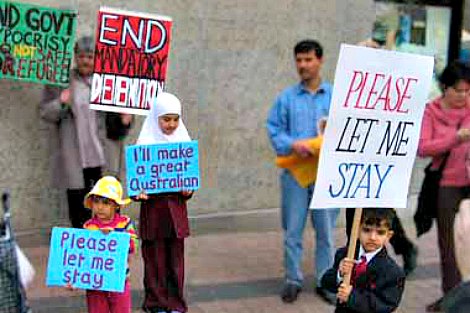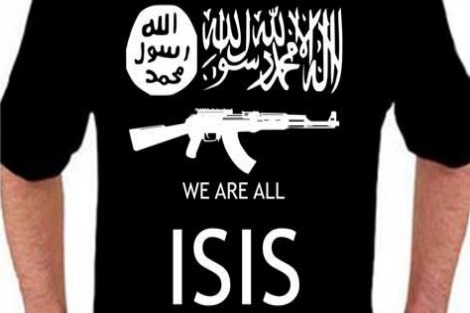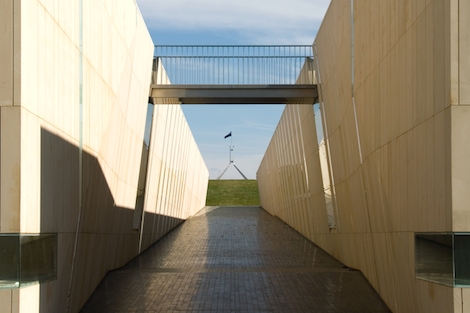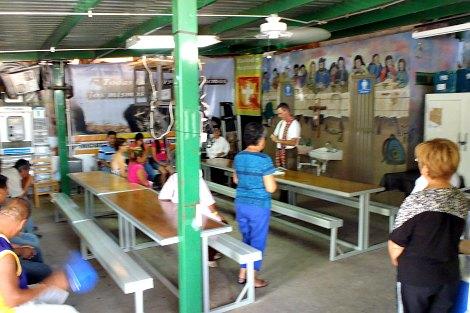Keywords: Jesuit Refugee Service Australia
-

RELIGION
- Frank Brennan
- 27 November 2015
2 Comments
'The crisis of child sexual abuse in our societies has required that our institutional procedures be more transparent and that we learn from the ways of the world in exercising power openly and justly. This means we have to restructure some of our church arrangements so that power is exercised accountably and transparently. All of us who have positions of influence and power in institutional churches need to be attentive to the voices of those who have suffered within our institutions.' 'Discerning the place for the prophetic voice and pragmatic cooperation of the churches in the great moral questions of the age', address to the Association of Practical Theology in Oceania conference, 26 November 2015.
READ MORE
-

- Frank Brennan
- 18 September 2015
Pope Francis's concerns are not narrowly dogmatic or pedagogical but universally pastoral. He knows that millions of people, including erstwhile Catholics, are now suspicious of or not helped by notions of tradition, authority, ritual and community when it comes to their own spiritual growth which is now more individual and eclectic. He wants to step beyond the Church's perceived lack of authenticity and its moral focus on individual matters, more often than not, sexual. He thinks the world is in a mess particularly with the state of the planet — climate change, loss of biodiversity and water shortages, but also with the oppression of the poor whose life basics are not assured by the operation of the free market, and with the clutter and violence of lives which are cheated the opportunity for interior peace. He is going to great pains to demystify his office. He wants all people of good will to emulate him and to be both joyful and troubled as they wrestle with the probl
READ MORE
-

- Frank Brennan
- 01 September 2015
1 Comment
If you want to form government in Australia and if you want to lead the Australian people to be more generous, making more places available for refugees to resettle permanently in Australia, you first have to stop the boats. If you want to restore some equity to the means of choosing only some tens of thousands of refugees per annum for permanent residence in Australia from the tens of millions of people displaced in the world, you need to secure the borders. The untrendy truth is that not all asylum seekers have the right to enter Australia but that those who are in direct flight from persecution whether that be in Sri Lanka or Indonesia do, and that it is possible fairly readily (and even on the high seas) to draw a distinction between those in direct flight and those engaged in secondary movement understandably dissatisfied with the level of protection and the transparency of processing in transit countries such as Malaysia and Indonesia. The popular evil is that political
READ MORE
-

- Greg O'Kelly
- 01 July 2015
3 Comments
The phrase 'the public square' is peppered throughout Frank Brennan's work. The 1988 film Cinema Paradiso depicts the public square in a Sicilian village over 30 or so years, and its slow and subtle change from a place where human beings gather to laugh, play and discuss. Billboards and garish signs appear and it becomes a car park bereft of its humanity.
READ MORE
-

- Aloysious Mowe
- 25 February 2015
Just before Christmas last year, the United States Senate Select Intelligence Committee released its report on the CIA's Detention and Interrogation Program, and its use of torture on detainees between 2002 and 2006. Among the report's key findings was the fact that the brutality of the torture and the harshness of the detention regime went beyond what the CIA. had reported to policy-makers (in other words, the CIA deliberately misled its Senate overseers); that the CIA's claims for the effectiveness of torture to obtain information that was vital for national security were inaccurate and unfounded; that the torture regime had damaged the standing of the United States, and resulted in significant costs, monetary and otherwise; that personnel were rarely reprimanded or held accountable for violations, inappropriate activities, and systematic and individual management failures. Read more
READ MORE
-

AUSTRALIA
- Kerry Murphy
- 08 December 2014
22 Comments
It is possible to understand why Senators Xenophon and Muir supported the bad law that reintroduces temporary protection visas. They saw it as a small improvement now for people in desperate circumstances, and that is true. The real culprit is the irrational and punitive policy pursued by the Government.
READ MORE 
-

AUSTRALIA
- Michael Mullins
- 20 October 2014
14 Comments
Australia has been unable to secure an ‘ironclad’ guarantee from a closer country that it would treat an Australian worker who contracted the Ebola virus in West Africa. Why would they open their hearts to West African Ebola victims and not to Australians? Thinking that imposes red tape on Australian humanitarian workers with demands of ironclad guarantees defies the logic of compassion.
READ MORE 
-

AUSTRALIA
- Kerry Murphy
- 01 October 2014
14 Comments
Last week, Immigration Minister Scott Morrison proposed migration law changes that he said would speed up processing of the backlog of refugee claims, and allow asylum seekers to 'get on with their lives'. In fact they do nothing of the sort. The new temporary protection visa (TPV) denies family sponsorship, travel to visit family, and more.
READ MORE 
-

AUSTRALIA
- Kerry Murphy
- 23 September 2014
4 Comments
We have adopted the dictum that our enemy's enemy is our friend. But the situation changes so rapidly on the ground, and working out who our 'allies' are is a very difficult and high risk activity. We are not even clear on the Rumsfeldian known unknowns, let alone the unknown unknowns.
READ MORE 
-

AUSTRALIA
- Frank Brennan
- 22 September 2014
5 Comments
Considering my indebtedness to the two Aborigines who met [my family's ship arriving in Hervey Bay from Ireland] 151 years ago, I owe it to all my fellow Australians to agitate these issues of law, morality and politics here in Ireland so that back in Australia, the homeland which, in my religious tradition, was known as the Great South Land of the Holy Spirit.
READ MORE
-

AUSTRALIA
- Kerry Murphy
- 12 September 2014
12 Comments
There may not be simple solutions to complex issues such as how to reduce the risk of travel by boat without punishing the refugees. However, the High Court's latest decision reminds us there are people involved and they are not ‘outlaws’.
READ MORE 
-

AUSTRALIA
- Frank Brennan
- 15 August 2014
30 Comments
We Australians confront none of the complexities of sharing a land border with a poor neighbour. Most Americans, I find, consider our policy morally repulsive and just stupid. They cannot believe that we routinely lock up children, that we recently held 157 people on a ship in the Indian Ocean for almost a month, and that we are now going to send up to 1000 asylum seekers to Cambodia.
READ MORE 